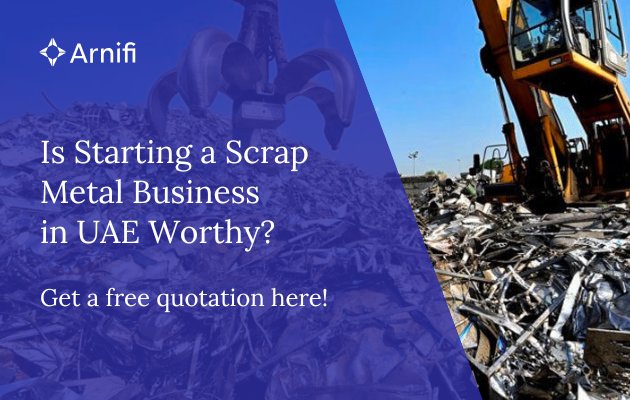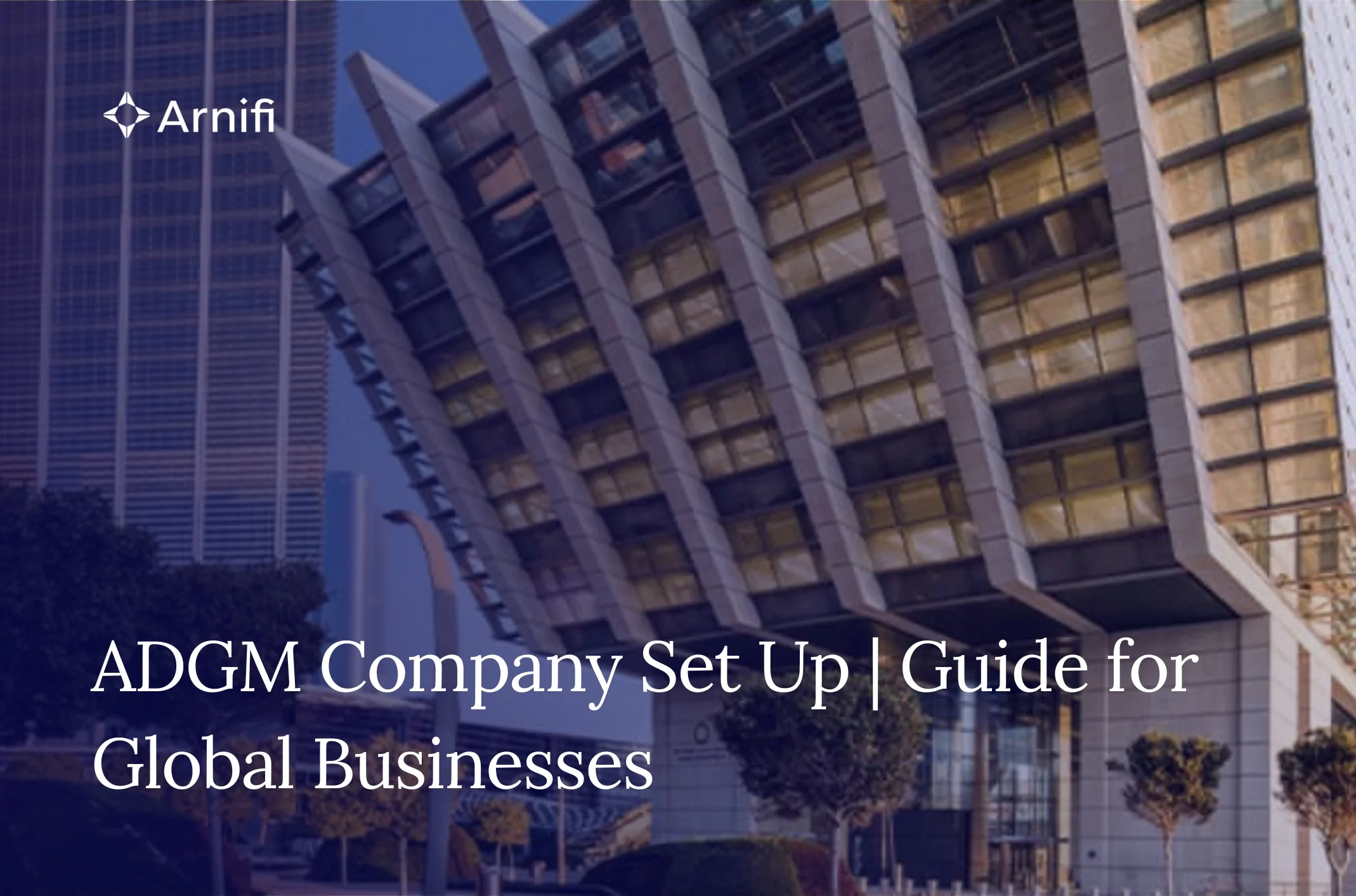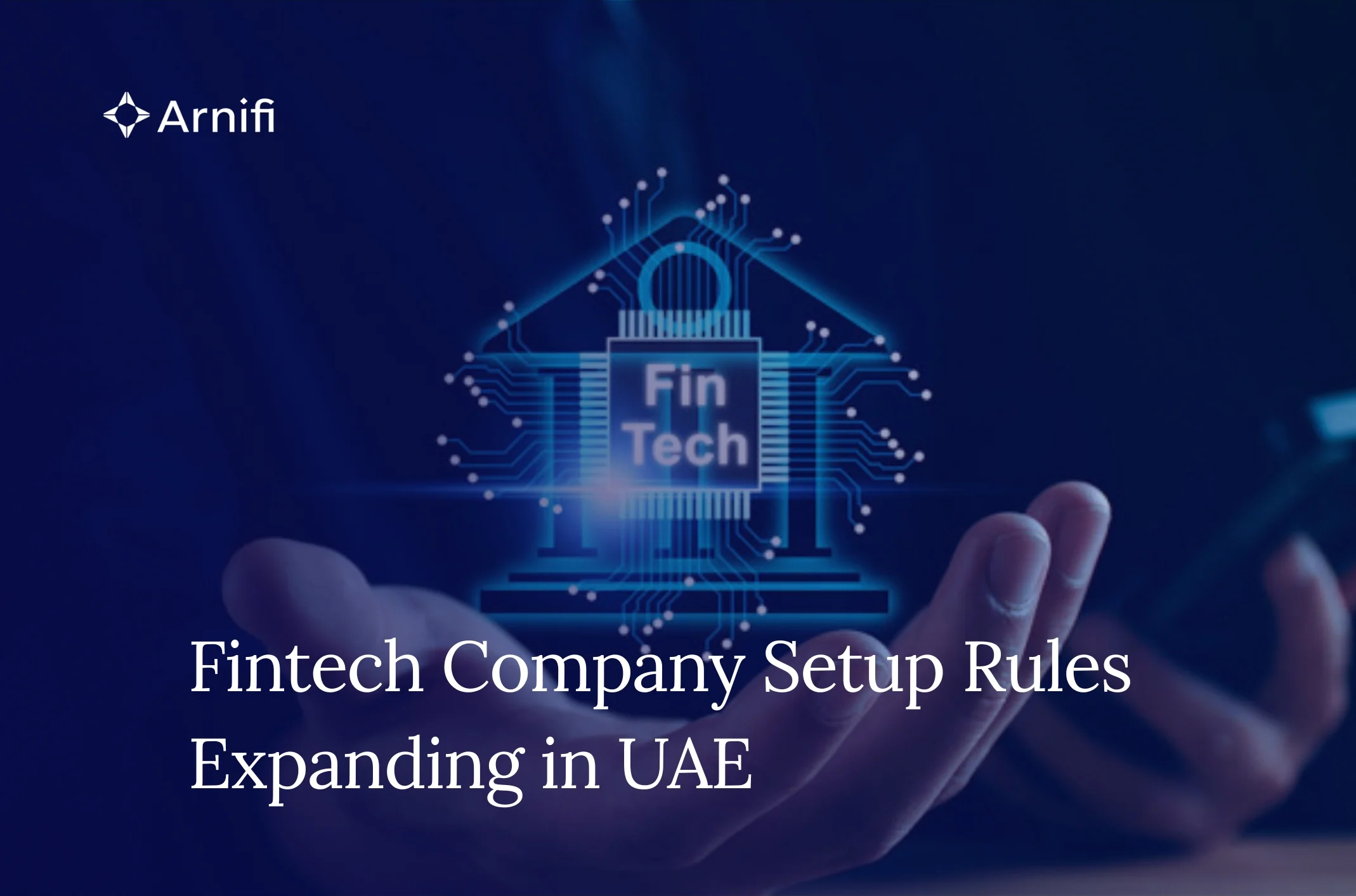How to Start a Scrap Metal Business in Dubai, UAE?
by Shethana Mar 22, 2025  7 MIN READ
7 MIN READ

Dubai offers a myriad of advantages including its strategic location, world-class infrastructure and investor-friendly policies.
This makes Dubai a global hub for entrepreneurs wanting to start their business. In recent years, one of the lucrative sectors that is gaining importance from all over the world is the scrap metal industry. Dubai, which serves as a significant link between major markets across Asia, Europe, and Africa, makes it an ideal city for conducting various activities.
Additionally, the scrap metal industry also plays a very crucial role in maintaining the environment’s sustainability while also contributing to the economic growth of the country. When you recycle and trade scrap metal, it leads to resource conservation while reducing landfill waste and minimizing carbon footprint.
If you are looking to establish your scrap metal industry in Dubai, you have come to the right place as this article serves as a detailed guide to help you set up your scrap metal business in Dubai.
Table of contents
- Understanding the Scrap Metal Industry in Dubai
- Types of Scrap Metal for Trading
- Legal Requirements and Business Registration
- Step-by-Step Process to Set Up a Scrap Metal Business in Duabi
- Cost Considerations and Investment Requirements
- Challenges in the Scrap Metal Industry and Risk Management
- Benefits of Business Consultants for Scrap Metal Setup
- Conclusion
Understanding the Scrap Metal Industry in Dubai
What do you understand about Scrap Metal Trading?
Scrap Metal Trading refers to the collective process of gathering, processing and selling the discarded material that can be either recycled or reused for various industrial activities. Dubai plays an extremely crucial role in the conservation of resources by reducing the dependence on raw material extraction while also minimizing environmental pollution.
This process typically involves using scrap material from construction sites, automotive industries, and other manufacturing plants. Once the materials have been gathered, they are processed and cleaned using advanced techniques before being sold to manufacturers.
Such metals mainly include aluminum, copper, and brass which hold economic value due to their widespread use in multiple sectors.
Scrap Metal Industry’s Market Potential in Dubai
Dubai has strengthened its position as a trade hub which boosts and enhances its scrap metal market potential. The demand for recycled metal has increased due to rapid infrastructure developments, industrialization, and global sustainability efforts.
Famous Ports like Jebel Ali facilitate efficient import-export operations, therefore making international trade seamless.
It’s state-of-the-art facilities and seamless connectivity with international markets make Dubai an ideal destination for trading scrap metal. Its advanced logistics and regulatory framework makes it a global leader in the competitive market today.
Economic and Environmental Benefits
Recycling scrap metal reduces reliance on virgin raw materials which, as a result, leads to conserving energy whilst also reducing production costs.
Additionally, this supports Dubai city to maintain its commitment to environmental sustainability by helping it to minimize waste disposal in landfills.
Furthermore, scrap metal trading generates employment opportunities and boosts local economic growth by generating the demand for both skilled and unskilled labor.
Types of Scrap Metal for Trading
Ferrous Metals
Ferrous metals contain iron and are widely used in construction and manufacturing. Common examples include steel and cast iron, which are recyclable and highly valuable in Dubai’s growing infrastructure projects.
Non-Ferrous Metals
These metals do not contain iron and are resistant to corrosion. Aluminum, copper, brass, and lead are some of the most sought-after non-ferrous metals due to their widespread use in electrical wiring, plumbing, and aerospace industries.
Electronic Waste (E-Waste)
With the rapid technological advancement in Dubai, electronic waste such as circuit boards, batteries, and outdated gadgets have become a significant source of recyclable metals like gold, silver, and palladium.
Other Recyclable Materials
Other recyclable materials in scrap metal trading include lead-acid batteries, car parts, and even catalytic converters, which contain precious metals like platinum and rhodium.
Also Read:
Legal Requirements and Business Registration
A. Choose the Right Business Structure
- Mainland Company Setup – Setting up a mainland company allows for direct trade within the UAE and international markets. It requires a local sponsor but provides unrestricted business operations.
- Free Zone Company Setup – Free zones offer 100% foreign ownership, tax exemptions, and minimal trade restrictions. Popular free zones for scrap metal trading include the Jebel Ali Free Zone (JAFZA) and Dubai Multi Commodities Centre (DMCC).
- Offshore Company Setup – Offshore companies in Dubai benefit from confidentiality and tax savings, though they are limited to international trade and cannot conduct business within the UAE.
B. Business Licensing for Scrap Metal Trading
Entrepreneurs must obtain a scrap trading license from the Dubai Department of Economic Development (DED) or respective free zone authorities. Compliance with environmental and safety regulations is mandatory.
C. Documentation Requirements
Key documents include a trade name reservation certificate, business plan, passport copies of shareholders, lease agreement, and NOC (if applicable).
Step-by-Step Process to Set Up a Scrap Metal Business in Duabi
- Conduct Market Research – Analyze demand, competition, and potential suppliers in Dubai.
- Choose the Right Business Location – Decide between mainland or free zone based on business goals.
- Register the Business and Obtain Licenses – Apply through DED or relevant free zone authority.
- Secure Operational Infrastructure – Acquire storage and processing facilities.
- Hiring Skilled Workforce – Employ laborers, machine operators, and administrative staff.
- Setting Up Financial and Banking Systems – Open a corporate bank account and manage business finances.
- Obtain Environmental and Safety Clearances – Ensure compliance with Dubai Municipality and environmental agencies.
- Launching the Business and Establishing Supply Chains – Partner with suppliers, buyers, and logistics firms.
Cost Considerations and Investment Requirements
Initial Setup Costs – Business registration fees, licensing costs, warehouse leasing, and equipment purchases form a major part of the initial investment. Setting up a free zone company may cost between AED 50,000 – AED 100,000.
Operational Costs – Expenses include labor salaries, logistics, machinery maintenance, and utility bills. Scrap metal businesses also need insurance coverage for safety compliance.
Additional Costs – Other expenses include marketing, transportation, and compliance with environmental laws. Periodic government fees and license renewals must also be considered.
Challenges in the Scrap Metal Industry and Risk Management
Market Volatility – Fluctuations in global metal prices can impact profitability, requiring businesses to diversify revenue streams.
Regulatory Compliance – Strict environmental and safety regulations necessitate regular audits and compliance measures.
Competition – Dubai has a competitive scrap metal market, demanding strong supplier networks and strategic pricing.
Logistical Challenges – Managing transportation, customs clearance, and storage facilities efficiently is crucial for smooth operations.
Benefits of Business Consultants for Scrap Metal Setup
Expert Guidance – Business consultants assist with legal documentation, licensing, and compliance, ensuring hassle-free setup.
Faster Registration Process – With expert knowledge of Dubai’s business laws, consultants expedite approvals and license issuance.
Access to Industry Networks – Consultants connect business owners with suppliers, logistics partners, and buyers, enhancing business opportunities.
Conclusion
The scrap metal business in Dubai presents a profitable opportunity for entrepreneurs due to its strategic location, trade-friendly policies, and booming infrastructure sector. By ensuring compliance with legal frameworks and environmental regulations, businesses can establish a sustainable and successful operation.
Investors must conduct thorough market research, choose the appropriate business structure, and consider hiring professional consultants for smoother operations. Dubai’s thriving metal recycling industry not only offers economic benefits but also contributes to global sustainability efforts.
Entrepreneurs looking to enter the scrap metal market should take advantage of Dubai’s business-friendly environment and explore long-term growth opportunities in the industry.
Top UAE Packages

Related Articles
Top UAE Packages



